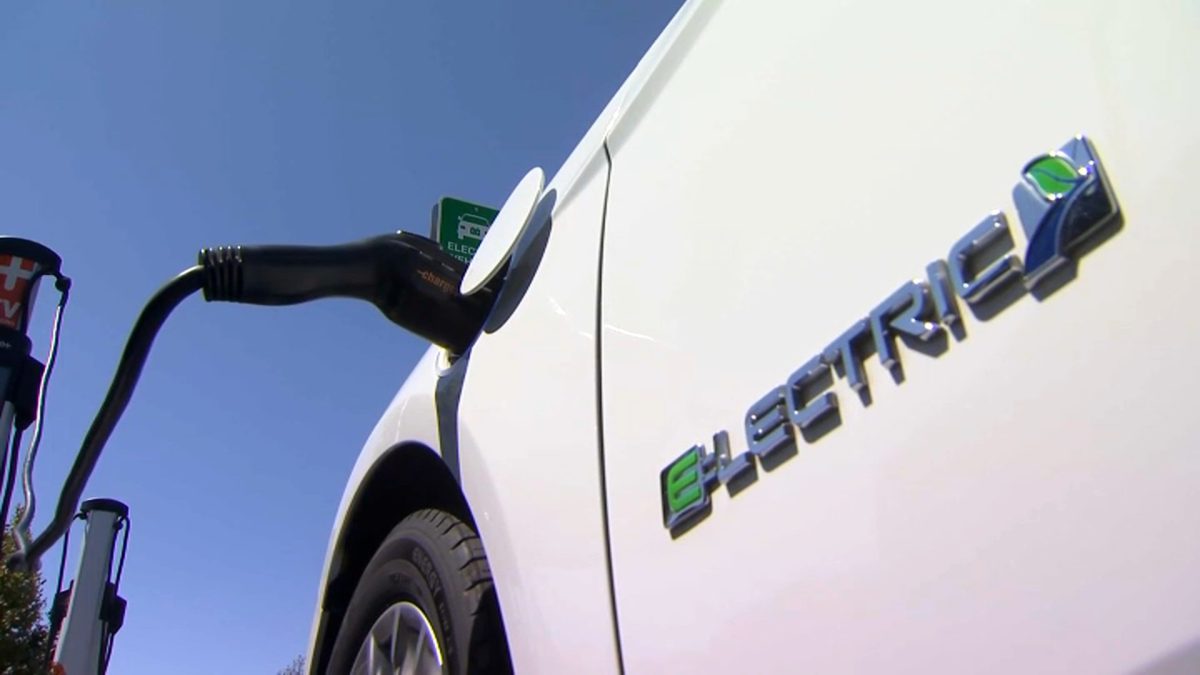Californians sweltering in the West’s lengthening heat wave were asked to reduce air conditioning and cut other electricity use again during critical hours Friday and again Saturday to prevent stress on the state’s electrical grid that could lead to rolling blackouts. The state's energy grid operator announced it is extending the Flex Alert to Sunday, continuing to urge consumers to conserve power as "challenging grid conditions persist."
"Significant Heat Wave Event"
Saturday will be the fourth consecutive day of requests by the state’s electrical grid operator for voluntary cutbacks during late afternoon and evening hours to balance supply and demand as millions of residents endured triple-digit temperatures.
The California Independent System Operator (CALISO) said multiple generators have been forced out of service because of the extreme heat, making energy supplies tighter.
Get a weekly recap of the latest San Francisco Bay Area housing news. Sign up for NBC Bay Area’s Housing Deconstructed newsletter.
A PG&E spokesperson told NBC Bay Area Saturday that there are no plans for a Public Safety Power Shutoff. However, PG&E said it is prepared for the possibility of heat related power outages on Monday and Tuesday. CALISO has not called for rotating outages at this time and any outages would be related to the heat, the PG&E spokesperson noted.
State leaders assembled Saturday for a rare weekend press conference to provide an update about the heat wave, the state's power grid, and the ongoing wildfires the state is battling.
Sarah Rogowski with the National Weather Service explained during the press conference that there is a "significant heat wave event" occurring across most of the state, with the hottest temperatures expected early to midweek. Rogowski added that places across the state are expected to hit record or near-record daily-high temperatures in addition to warm overnight temperatures.
"These temperatures are warm, they are looking at temperatures 10 to 25 degrees above normal for this time of year," she noted. Rogowski said that with heat continuing overnight, Californians are not getting the break from the heat that they normally would.
The heat overnight also means that power transformers don't have a chance to cool off at night either.
"We have emergency power capabilities on standby in the event there[are] power outages,” noted Mark Ghilarducci Director of the California Governor’s Office of Emergency Services at the Saturday press conference.
Electricity demand on Thursday September 1 hit a peak of 47,357 megawatts, the highest since September 2017. Cal ISO credited conservation and reduced commercial use with keeping the grid stable.
High Temperatures Expected to Continue
“The major concern now is even higher temperatures forecast for Sunday, Monday, and Tuesday, with projected loads climbing to more than 49,000 megawatts on Tuesday,” Cal ISO said in a statement.
In August 2020, a record heat wave caused a surge in power use for air conditioning that overtaxed the grid. That caused two consecutive nights of rolling blackouts, affecting hundreds of thousands of residential and business customers.
Gov. Gavin Newsom on Wednesday declared an emergency to increase energy production and relaxed rules aimed at curbing air pollution and global warming gases. He emphasized the role climate change was playing in the heat wave.
“September is off to a searing start in the West with record breaking temperatures and fire weather expected to expand and settle over that part of the country this Labor Day weekend,” the National Weather Service said.
Trying to Cool Off

The Wave waterpark in Dublin, CA was relatively packed on Sunday, staff noted. Visitors drove from all around to get a break from the heat as temperatures reached the high 90's in parts of the East Bay.
"It's been crazy," said Eamon Fakhri of Dublin who opted to cool off by going down the waterslide at the park five times.
"Like, I walk outside with regular clothes on and I would be sweating," he said of the heat.
How is he going to cope with the next few days of heat?
"Probably just chill inside my house with the AC on," Fakhri said.
Cora Webber of Oakland took her grandkids to the waterpark Saturday, " because this is the only water park around."
Webber has been staying cool by drinking lots of ice water. She believes the summers have been getting hotter in the Bay Area than she remembers.
"And we’re not getting that much rain," Webber added, "that’s the thing-- we’re in this drought, we're getting all this heat, you know this fire danger and I’m really really worried about climate change."
In the coming days, Webber's advice to others is: "drink a lot of cold water please, stay hydrated."

Author Stephanie Solomon, 33, brought her pet tortoise along with a portable baby pool with a miniature umbrella to keep it cool while selling her children’s books at the Huntington Beach Pier.
“It is really hot out here today. Well, Penelope Joy is a desert tortoise, so I think she is the only one that’s really enjoying this heat as hot as it is today,” said Solomon, as surfers and swimmers sought refuge in the ocean below.
Solomon said she was mindful of the power situation and her air conditioning was off while she was away .But she planned to activate it by phone on her walk home to “make sure it’s nice and cool in there.”
Gov. Gavin Newsom on Wednesday declared an emergency to increase energy production and relaxed rules aimed at curbing air pollution and global warming gases. He emphasized the role climate change was playing in the heat wave.
“September is off to a searing start in the West with record breaking temperatures and fire weather expected to expand and settle over that part of the country this Labor Day weekend,” the National Weather Service said.
Author Stephanie Solomon, 33, brought her pet tortoise along with a portable baby pool with a miniature umbrella to keep it cool while selling her children’s books at the Huntington Beach Pier.
“It is really hot out here today. Well, Penelope Joy is a desert tortoise, so I think she is the only one that’s really enjoying this heat as hot as it is today,” said Solomon, as surfers and swimmers sought refuge in the ocean below.
Solomon said she was mindful of the power situation and her air conditioning was off while she was away .But she planned to activate it by phone on her walk home to “make sure it’s nice and cool in there.”
“I was kind of blindsided,” he said, and “there are some folks that, if their thermostat gets locked, that can be life or death.”
California’s “Flex Alerts” urge conservation between 4 p.m. and 9 p.m., the hours when production of solar energy declines. The grid operator urges people to use major appliances, charge electric cars and cool down their homes earlier in the day, then turn up thermostats to 78 degrees (25.5 Celsius) or higher.
“The No. 1 most effective conservation measure is to set thermostats to 78 or higher” because air conditioners are the biggest users of electricity in the summer, Anne Gonzales, a spokeswoman for the grid operator, said in an email.
“We have traditionally asked for 78 degrees, because it has a good effect on our demand, and is still comfortable to allow consumers to easily participate,” she said. “We always ask consumers to set it higher, if they can, and if health permits.”
Keeping temperatures too low can cause air conditioners to run constantly, added Jay Apt, professor at the Carnegie Mellon University College of Engineering.
“If you set that puppy too low, it’s going to run all the time,” said Apt. “That’s going to do two things, the first is that it is going to use an awful lot of energy and the second is that it’s not going to give recovery time.”
The goal is to allow units to cycle on and off, said Apt, and 78 degrees is a rough estimate for the sweet spot that can vary depending on a building’s insulation.
In California, customers of Pacific Gas & Electric, the nation’s largest utility, can volunteer to let the company control their internet-connected thermostats during heat waves. The program automatically adjusts the thermostat schedule so it uses less energy during times of peak demand.
Customers can get $75 for participating and can opt out of it by simply changing their thermostat to a different temperature. The company does not lock thermostats, PG&E spokesperson Katie Allen said.
California cities and counties, meanwhile, were opening cooling centers.
“We have opened cooling centers in the past, but this heat wave looks like it’s the real thing,” said Dr. Ori Tzvieli, health officer in Contra Costa County east of San Francisco.
Some of the cooling centers will be specifically for homeless people, and an outreach team will also go out to hand out water to the homeless and inform them of available resources, Tzvieli said.
Officials also said the heat would compound the effects of smog. The Bay Area Air Quality Management District issued an alert for unhealthy levels of ozone pollution, especially for children, seniors and those with respiratory and heart conditions.
___
Garcia reported from Huntington Beach. Associated Press reporters Olga R. Rodriguez in San Francisco, Adam Beam and Don Thompson in Sacramento, and Colleen Slevin and Jesse Bedayn in Denver contributed to this report.




